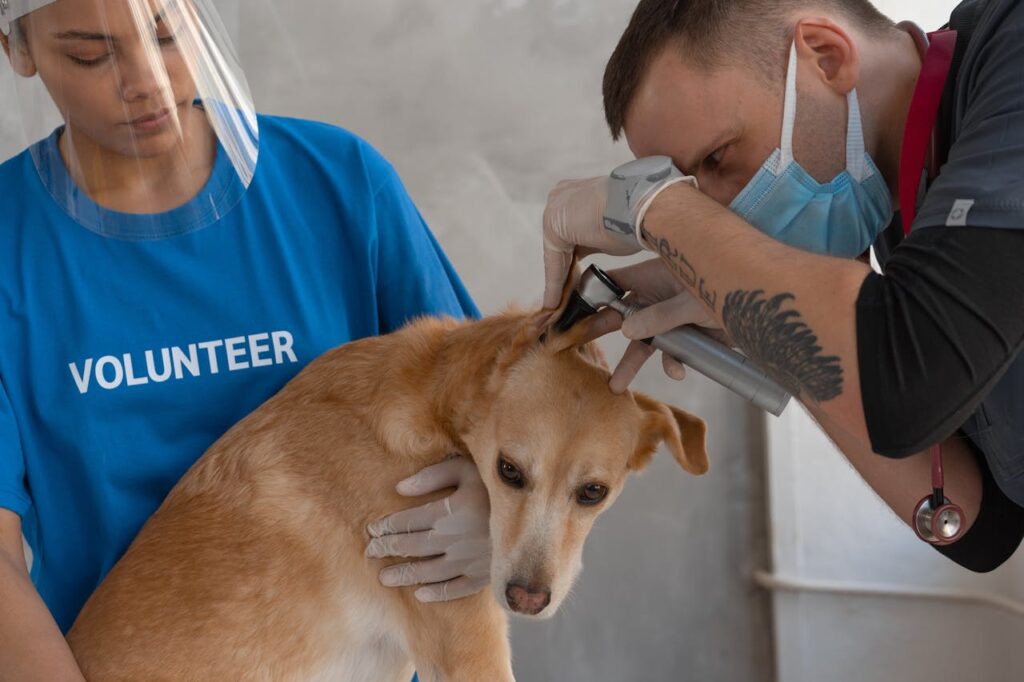Veterinary Course Full Details
Overview:
Veterinary courses are designed to train individuals to diagnose, treat, and prevent diseases and disorders in animals. These programs prepare students for careers as veterinarians or veterinary technicians.
Types of Veterinary Courses:
Bachelor of Veterinary Science (BVSc): Typically a 5-year undergraduate program.
Bachelor of Veterinary Medicine (BVM): Also a 5-year undergraduate program, similar to BVSc.
Master of Veterinary Science (MVSc): A 2-year postgraduate program following a BVSc or equivalent degree.
Doctor of Veterinary Medicine (DVM): A professional degree program in some countries, often taking 4 years to complete after undergraduate studies.
Diploma and Certification Courses: Short-term programs focusing on specific areas of veterinary practice or technology.
Key Subjects in Veterinary Courses:
Anatomy and Physiology: Study of animal body structure and function.
Pharmacology: Understanding of medications and their effects on animals.
Pathology: Study of diseases and their causes.
Microbiology: Study of microorganisms that affect animal health.
Surgery: Techniques and procedures for surgical interventions.
Internal Medicine: Diagnosis and treatment of internal diseases.
Reproduction and Obstetrics: Study of animal reproduction and birthing processes.
Animal Nutrition: Understanding dietary needs and nutrition for various animals.
Public Health: Focus on zoonotic diseases (diseases that can be transmitted from animals to humans).

Admission Requirements:
Educational Background: Typically requires a high school diploma or equivalent, with coursework in science subjects like biology and chemistry.
Entrance Exams: Many programs require passing an entrance exam or standardized test.
Experience: Some programs require practical experience or internships in veterinary clinics.
Career Opportunities:
Veterinarian: Diagnosing and treating animals in private practice, clinics, or research settings.
Veterinary Technician: Assisting veterinarians with medical procedures, laboratory tests, and animal care.
Veterinary Pathologist: Specializing in disease diagnosis through laboratory analysis.
Animal Nutritionist: Focusing on dietary needs and nutrition for animals.
Veterinary Surgeon: Performing surgeries on animals.
Research Scientist: Conducting research in veterinary medicine and animal health.
Key Skills Developed:
Medical and Diagnostic Skills: Ability to diagnose and treat various animal health issues.
Surgical Skills: Proficiency in performing surgeries.
Communication Skills: Ability to interact effectively with pet owners and other healthcare professionals.
Problem-Solving Skills: Critical thinking to address complex medical cases.
Compassion and Empathy: Providing care and support to animals and their owners.
Institutes and Universities:
National Institutes: ICAR (Indian Council of Agricultural Research) institutes, Rajiv Gandhi Institute of Veterinary Education and Research, etc.
Private Colleges: Various private institutions offer veterinary courses, including Apollo College of Veterinary Medicine, etc.
International Institutions: Universities like the University of Edinburgh, Cornell University, and the University of California, Davis offer renowned veterinary programs.
Costs and Financial Aid:
Tuition Fees: Varies by institution and location. Government and private institutions have different fee structures.
Scholarships: Available based on merit, need, or specific criteria related to veterinary medicine.
Financial Aid: Loans, grants, and assistantships may be available.
Accreditation:
Ensure that the veterinary program is accredited by relevant veterinary medical boards or councils, which is essential for licensure and professional recognition.
Veterinary Course
For individuals who are interested in the health and medicine of animals, veterinary programs offer a thorough education. Students first get a strong foundation in biological sciences, which is necessary to comprehend the anatomy and physiology of animals. As a result, students go on to more specialist courses like pathology and pharmacology.
Moreover, practical experience in clinical settings is a crucial component of the curriculum, enabling students to practically apply their academic knowledge. Furthermore, to improve practical skills, veterinary curricula frequently incorporate externships or internships. Graduates are therefore well-suited for a variety of positions in veterinary practice.
Furthermore, it is essential to be able to identify and manage a broad variety of animal ailments. As a result, there is an increasing need for qualified veterinarians, which highlights the significance of the field. Ultimately, pursuing a veterinary course offers a fulfilling career dedicated to improving animal health and welfare.
A veterinary course provides comprehensive training in animal health, covering areas like anatomy, physiology, and disease management. Additionally, it equips students with practical skills through hands-on experience, preparing them for a successful career in veterinary medicine.




